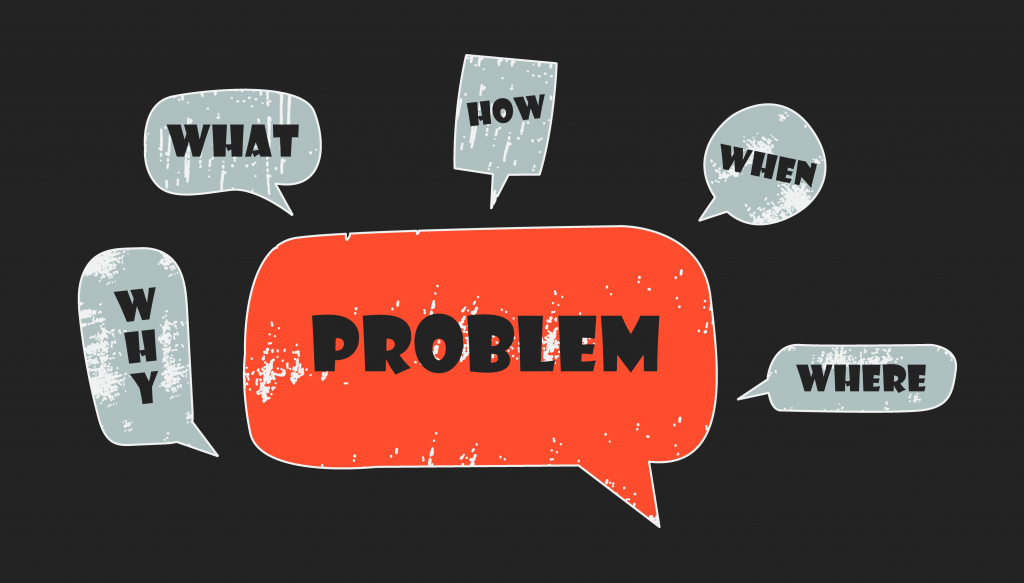If someone were to ask you to picture an inside sales representative, your first impression might be a charming individual, carrying a cross-body bag and who is good with words. Alternatively, you might think of a gentleman wearing a high-end suit, closing a deal with utmost finesse. However, salespeople have evolved since those glory days. Covid-19 has forced all of us to work from home, but that shouldn’t limit our ability to make sales. Nowadays, there are plenty of ways in which these charming individuals can secure precious leads. But can they do it without stepping out of their offices?
They sure can.
What is an Inside Sales Representative (ISR)?
An ISR is a salesperson who does business remotely, without necessarily engaging with customers in-person. This may be over the phone (as telemarketers do), but has evolved because of technological advancements. Today, an ISR may make a sale through email, video conferencing, messaging, customer service chats and other forms of online communication. An ISR’s role includes but is not limited to:
- Making outbound cold and warm calls to acquire leads. (Find out the difference between cold calling and warm calling here)
- Conducting in-depth Market research to identify prospective customers
- Consistently expanding the customer database
- Providing customer service to meet needs and requirements
All this without actually meeting the customer. Impressive isn’t it?
Being an ISR in 2020…
Because of Covid-19, many Marketers and Salespeople shifted to remote working. This caused an overlap between Inside sales and Field sales. As a result, Marketing companies are increasingly demanding more ISRs in their sales teams because this is the time for them. In fact, an MIT report found that inside sales recruitment is exceeding traditional field sales by a ratio of around 15:1!
In 2020, becoming an ISR means it is important to possess a specific skill set, one that allows you to navigate through different scenarios on your feet. Unlike Telemarketing calls that are scripted, ISRs are required to think on their feet. These individuals typically possess strong acumen and communication skills, allowing them to adapt to different situations with ease. This gives ISRs an advantage over traditional Telemarketers, who stick to a fixed script, one-size-fits-all approach. For more information on some of the mistakes Telemarketers make, check out our article here.

So what skills make up a proficient ISR? We’ve laid out not one, not two but seven must-have skills of ANY ISR for 2020. These seven skills will not only improve your customer engagement skills, but would help acquire quality leads but also build customer loyalty at the same time. If you’re an aspiring ISR, this article is for you. Alternatively, if you’re a Marketing recruiter and are looking for a skilled ISR, be sure to look out for these seven skills before your final decision!
Skill #1. Research and Preparation
You know that feeling when you walk into a retail store and ask the sales staff for help, but they have no idea about where an item is, or how to best help you? That feeling of disappointment that they don’t seem to know what they’re doing. Yeah. You don’t want that happening over the phone. Because in a retail store, the customer can simply ask another sales rep for help. On the phone however, ending a call can take less than a second.
That’s why good ISRs know their business inside out. Good ISRs, undertake research.
By analysing their products/services in-depth, ISRs are able to effectively explain them to the prospect. This helps appeal to the respective customer, while showing how the product will be of value to them or their business. Having an intimate understanding of the product/services’ features, functionality and shortfalls is crucial to ensure success. Prepare a high performance cold calling script, one that is adept to ANY and EVERY type of customer you can encounter. Don’t know where to start? Check out our FREE cold-calling script ebook and get your copy here.

With research, it is also important that ISRs find out about who they’re calling and why they’d be interested in the offer. As exciting as it might be to pick up the phone and start dialling, do your due diligence. Make sure to gather sufficient information about the prospects, how your product/service would be useful to them and how to tailor your approach. Prepare an ideal customer profile, one that will help you qualify or disqualify leads. Research the market, potential competitors who may be in your customer’s mind, why your product is better and how you can reward customers.
Research like you’re a sales scientist.
Skill #2. Goal Setting
Once you’re done with the formal research bits, move onto setting achievable goals for yourself. This may include:
- Making x number of cold calls, and y warm calls
- Converting x number of prospects into qualified leads
- Providing customer service on Problem A instead of B
- Follow up on x number of customers who entered through your CRM generated email automation system
And so on.
Having set goals for what you wish to achieve with your campaign. The benefit of being an ISR is that you get to control and adapt your efforts completely. A field sales rep is bound by location, a traditional telemarketer is bound by a scripted process. ISRs learn and adapt, so set your goals and achieve them one by one.
Skill #3. Time Management
Alright, now that you’re done with the research and preparation, it’s time to get your hands dirty. It’s time to make some calls, send out some emails and reach out to prospects. Time management is a key skill that ISRs harness in order to maximise their sales potential. This is also why goal setting is important, because it can help develop discipline and more efficient management of time. The classic way of measuring the success of a salesperson, is the level of sales productivity. This is essentially the amount of revenue an ISR generates, or the leads secured, for the number of hours worked.

While setting a goal to make 500 calls in a day may appear to be intimidating, effective time management can help accomplish this. Once you devise a plan to work with utmost focus and concentration, the ‘flow’ of calling and securing leads will set in. That is why ISRs focus on a specific task at a time, whether that’s emailing for 3 hours straight, or cold calling for 4 hours straight.
That’s not all, ISRs also know the importance of the prospects’ time, and try getting the message across as soon as possible. Not every prospective customer would be interested in engaging in a conversation over the phone. Being respectful of their time by tailoring your approach to sell your product, is another sign of good time management.
Skill #4. Building Rapport
While it is important that you convey the message to the prospect in time, rushing towards ‘closing the deal’ is a common mistake many salespeople make. An ISR is aware of this, and therefore knows how to build rapport. Since there is no in-person interaction, it is crucial that the ISR makes a good first impression, to then secure the lead smoothly. Your ability to convince a customer why they should listen to you, comes down to two key factors:
- How quickly can you establish a connection and build a relationship with them
- How good you are at storytelling and keeping them engaged
- Understanding the prospect’s mindset and adjusting your approach accordingly
If communication and establishing relationships comes naturally to you, congratulations; you already have an advantage. If it doesn’t, a bit of background research to find out potential common ground can help with this as well. Storytelling is a great way to keep the call light-hearted and engaging for the prospect. Practice telling short stories to your prospect that help explain the benefits of your product or service, or about your company. Over time, you’ll get better and storytelling will flow with ease. Additionally, be sure to work on your tone of voice and add enthusiasm to it. That is what ultimately separates an ISR’s sales call, and that of a traditional telemarketer.
Skill #5. Problem-Solving
In case this one brings back memories from your math class, don’t worry. Problem-solving in Marketing can mean a whole lot of things, for which you don’t necessarily need a strong math background.

A proficient ISR knows that the best way to convince customers that the business is the real deal, is to solve their problems. In order to obtain an edge over your competitors, it’s crucial that you follow these 2 steps to improve your problem-solving skills:
- Define the problem: Make sure you pay attention to the customer’s needs, complaints and questions. From there, briefly define the problem and confirm it before you proceed. Often at times, sales professionals try solving a problem that doesn’t exist in the first place. ISRs are different!
- Provide solutions: This may differ from customer to customer, and also depends on what the customer’s status and background is. The last thing you want to do is to offer a solution that is not feasible or is too complicated. Brainstorm some ideas and provide solutions that can help address that problem. Be sure to also provide alternatives in case the first option doesn’t work out.
The simpler you can explain the problem and solution to the prospect, the more chances you have to secure a lead. Sounds basic, but is extremely important to ensure your prospect understands your concern and appreciates your solutions. Do this more often and you’ll see more and more customers flock your business for help.
Skill #6. Handling Rejection (Closing Techniques)
Think of closing the sale as a mix of all the skills mentioned above for an ISR. You’ve called your customer, you’ve got them hooked and interested, now it’s time to bring it home. Once you’ve built rapport and identified what the customer wants, ask for the sale. If you’ve delivered your pitch effectively, qualified the prospect as a lead and provided them solutions, now is the time to proceed with the sale. Here’s where things can get a little tricky.
It’s highly likely that your prospect starts off with an initial ‘no thank you’ or ‘not interested’. However, instead of giving up on them and hanging up, try asking why they’re reluctant to buy and what exactly you can do to convince them. Often at times, customers may be unaware as to why they’re refusing the product. Asking them this question would encourage them to think and possibly reconsider.

If they still persist, thank them for their time and move onto your next call. Plenty more you can try for.
Skill #7. Following-up
Say you’ve done all the steps mentioned above, congratulations; good job. However, we’ve got news for you: simply obtaining qualified and enthusiastic leads is not enough.
Why?
Because people get busy. The prospect you spoke to over the phone, might forget about the call within hours if something comes up in their lives. Whether that’s job-related or something personal, people tend to forget these things. So it’s your job to remind them. Follow up on your prospect through automated emails or calls to keep them within the loop. Depending on how positively they receive the follow up, decide on further contact efforts. Following up also allows you to present more information to the prospect that you weren’t able to on call. This might potentially lead to further purchases or requests made as they would be more interested.
A good way ISRs stay on track with following up is that they set reminders for when a follow up email automation is meant to go out. Setting daily call reminders to follow up is also a useful way to remain on schedule and helps ISRs hit their goal targets as well.
To sum up…
So those are 7 key skills that EVERY Inside Sales Representative (ISR) must possess. ISRs are powerful agents who pride themselves on acquiring leads, conducting research and providing efficient customer service. Honing these skills will help you see more out of your Marketing campaign and achieve sales success as an ISR.
Insil is a boutique Australian Marketing Agency, dedicated to providing customers with a holistic approach to Design Thinking and Marketing Services.
If you’re interested in generating more sales, increasing traffic and attracting higher quality leads, sign-up to receive a free, no-obligation strategy session TODAY.
Get in Touch
What is the difference between an Inside Sales Representative (ISR) and a Field Sales Representative?
A traditional field sales rep’s job requires personal, face-to-face interaction with the prospective customers. A field sales rep’s role may therefore, be more time consuming due to travelling. An ISR on the other hand, operates remotely, either from home or from the office directly. ISRs prepare lists of prospects and conduct cold calling and cold emailing while working remotely, to secure leads with finesse.
What key qualities should an ISR possess?
ISRs typically must have a strong sense of confidence and self-efficacy, i.e. they should be comfortable engaging with customers. They must also be well-versed with Market research and goal preparation, to help them stay on track. An efficient ISR knows the value of time and tries to secure a lead as quickly as possible, without jeopardising the relationship with the prospect. These, along with the 7 skills mentioned in this article make up for a perfect ISR.
Is an ISR the same as a Telemarketer?
In some ways yes. Telemarketers rely on sales calling to conduct their sales; whereas ISRs use cold emailing AND sales calling to contact customers. ISRs also receive inbound calls and provide customer service when required, to keep customers within the loop and expand the prospect database for the company.
